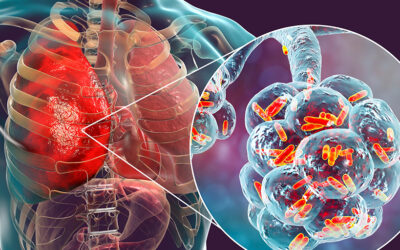Childhood Obesity: Causes, Early Signs, and the Role of Paediatric Endocrinology

Childhood obesity is a growing health concern in India, with cases steadily increasing due to various factors such as sedentary lifestyle and unhealthy diet. Excess weight during the growing years not only affects a child’s physical health but can also adversely impact their emotional and social wellbeing. If left unaddressed, childhood obesity can lead to serious long-term health complications such as diabetes, heart disease, and hormonal imbalances. Recognising early signs and seeking timely interventions such as nutritional guidance, lifestyle changes, medical evaluation, and specialist care from paediatric endocrinologists is essential for healthy growth and long-term wellbeing. This article outlines how childhood obesity develops, its impact on health, and the role of paediatric endocrinologists in its effective management.
Table of Contents
ToggleWhat is Childhood Obesity?
Childhood obesity is a condition where a child has an excessive amount of body fat that can affect overall health and development. Doctors usually assess it using body mass index (BMI) charts specific for age and gender, along with growth patterns and physical examination. While some weight gain is natural as children grow, obesity occurs when weight is significantly higher than what is considered healthy for a child’s height and age.
In India, childhood obesity is rising rapidly, particularly in urban areas where sedentary lifestyles and high-calorie diets are more common. Identifying the problem early helps prevent complications and allows timely treatment.
What Are the Early Signs of Obesity in Children?
Obesity in children often develops gradually, and early signs can sometimes be overlooked. Recognising these changes at the right time helps in seeking timely medical advice. Common early indicators include:
- Rapid weight gain compared to peers: A child may consistently gain more weight than children of the same age and height.
- Difficulty in physical activity: Shortness of breath, tiredness, or reluctance to take part in sports or outdoor play.
- Skin changes: Stretch marks or dark, velvety skin patches (acanthosis nigricans), often linked to insulin resistance.
- Sleep-related issues: Snoring, restless sleep, or symptoms of sleep apnoea.
- Emotional or behavioural changes: Low confidence, irritability, or withdrawal from social activities due to body image concerns.
Causes and Risk Factors for Childhood Obesity
Childhood obesity usually develops from a mix of lifestyle, genetic, and medical influences. Understanding both the causes and risk factors is important for early prevention. Some of the most common causes and risk factors for obesity include:
- Poor diet and high-calorie food: Frequent intake of fast food, packaged snacks, sugary drinks, and meals low in dietary fibre contributes to excess weight gain.
- Lack of physical activity: Sedentary behaviour, prolonged screen time, and limited outdoor play reduce calorie expenditure and slow metabolism.
- Family history and genetics: Children with parents or close relatives who are overweight, diabetic, or have obesity are more likely to face similar challenges.
- Hormonal and metabolic disorders: Conditions such as thyroid imbalance, insulin resistance, or polycystic ovary syndrome (PCOS) in girls may lead to abnormal weight gain.
- Environmental and lifestyle factors: Urbanisation, limited access to safe play areas, and reliance on fast food make children more vulnerable.
- Unhealthy eating patterns: Regular consumption of fried foods, refined carbohydrates, and high-sugar diets accelerates the risk of obesity.
How is Childhood Obesity Diagnosed?
Diagnosis of childhood obesity involves a detailed medical evaluation to distinguish between normal growth patterns and unhealthy weight gain. Doctors may use:
- Growth charts and BMI-for-age: These tools compare a child’s height and weight against standard values for age and gender.
- Clinical examination: A paediatrician checks for visible signs such as acanthosis nigricans, abnormal fat distribution, or thyroid enlargement.
- Blood tests: Assessments may include glucose, cholesterol, thyroid hormones, and insulin levels to detect metabolic or hormonal imbalances.
- Medical history review: Understanding eating habits, physical activity levels, and family health background helps identify contributing factors.
When Should You See an Endocrinologist?
An Endocrinologist specialises in hormonal and metabolic disorders in children. While many cases of childhood obesity can be managed with diet and lifestyle changes, certain warning signs indicate the need for specialist care:
- Signs of hormonal imbalance: Unexplained weight gain, slowed growth, early puberty, or excessive hair growth in girls.
- Obesity not improving with lifestyle changes: When healthy eating and regular activity do not reduce weight over time.
- Concerns about thyroid, diabetes, or growth disorders: If symptoms point towards underlying endocrine conditions such as hypothyroidism, insulin resistance, or delayed growth.
How Do Endocrinologists Help in Managing Childhood Obesity?
Endocrinologists play a key role in identifying and treating obesity linked to hormonal or metabolic problems. Their approach includes:
- Detailed evaluation and blood tests: Comprehensive assessments to check thyroid function, insulin resistance, cortisol levels, and other hormone markers.
- Identifying hormonal causes: Detecting issues such as hypothyroidism, diabetes, or adrenal disorders that may be contributing to weight gain.
- Personalised treatment plans: Tailored strategies that combine medical management with nutrition and physical activity guidance.
- Multidisciplinary coordination: Working closely with dietitians, paediatricians, and physiotherapists to ensure a well-rounded approach to treatment.
By addressing both lifestyle and medical factors, endocrinologists help children achieve healthy growth and reduce risks of long-term complications.
Treatment and Interventions for Childhood Obesity
Managing childhood obesity requires a holistic and team-based approach that addresses diet, physical activity, psychological wellbeing, and, when needed, medical treatment. The key components of care include:
- Multidisciplinary medical care: Paediatricians, registered dietitians, exercise physiologists or physiotherapists, family physicians, nurse practitioners, child psychologists, and psychiatrists often work together. In cases with hormonal concerns, paediatric endocrinologists guide further evaluation and treatment.
- Lifestyle modifications: A balanced diet rich in fruits, vegetables, whole grains, and dietary fibre, along with reducing sugary drinks and processed foods, forms the foundation of management. Parents and schools play a vital role in ensuring healthy meals and controlled portions.
- Physical activity programmes: Encouraging daily exercise, outdoor play, and limiting screen time helps improve metabolism and overall health.
- Behavioural and psychological support: Counselling improves self-esteem, addresses emotional eating, and supports healthier lifestyle choices.
- Medical and surgical options: In rare and severe cases, especially among older adolescents, medications or bariatric surgery may be considered under strict medical guidance.
What Are the Health Risks of Untreated Childhood Obesity?
If not addressed early, childhood obesity can lead to several long-term health problems affecting both the body and mind:
- Type 2 diabetes: Excess weight increases insulin resistance, raising the risk of early-onset diabetes.
- Heart and vascular problems: High blood pressure, high cholesterol, and increased risk of heart disease later in life.
- Respiratory issues: Conditions such as asthma and obstructive sleep apnoea are more common.
- Bone and joint problems: Extra weight puts strain on growing bones, causing pain and mobility issues.
- Psychological effects: Low self-esteem, anxiety, depression, and risk of social isolation due to bullying or body image concerns.
Recognising and managing obesity in early years prevents these complications and supports healthier adulthood.
How Can Childhood Obesity Be Prevented?
Preventing childhood obesity requires consistent efforts at home, school, and community levels. Simple yet effective measures include:
- Balanced diet: Meals should include fruits, vegetables, whole grains, pulses, and foods high in dietary fibre, while limiting fried snacks, fast food, and sugary drinks.
- Portion control: Teaching children healthy portion sizes helps prevent overeating.
- Regular physical activity: At least 60 minutes of active play, sports, or exercise daily encourages healthy growth.
- Limiting screen time: Reducing hours spent on television, mobiles, or gaming allows more time for outdoor play.
- Family involvement: Children are more likely to adopt healthy habits when parents and siblings follow similar routines.
Building these habits early helps children maintain a healthy weight and reduces the risk of obesity-related complications later in life.
Why Choose Graphic Era Hospital for Paediatric Endocrinology?
At Graphic Era Hospital, children struggling with obesity receive care that is comprehensive, compassionate, and guided by medical expertise. The hospital focuses on accurate diagnosis, effective treatment, and long-term support for children and their families. We offer:
Dedicated Medical Expertise
The paediatric endocrinology team at Graphic Era Hospital brings years of experience in managing hormonal and metabolic conditions that contribute to obesity. Every child is assessed individually, with personalised treatment plans that address not only their physical health but also emotional wellbeing. A multidisciplinary team of paediatricians, dietitians, psychologists, and physiotherapists work hand-in-hand to provide holistic care.
Cutting-Edge Diagnostic Support
Graphic Era Hospital is equipped with modern diagnostic facilities, including advanced hormonal assays and metabolic testing tools, which ensure precise identification of underlying causes such as thyroid imbalance or insulin resistance. The use of evidence-based protocols and the latest treatment options allows doctors to deliver safe and effective care tailored to each child’s needs.
Patient-Centred Care
Beyond medical expertise, the hospital places strong emphasis on building trust with families. Parents are guided through every step of the child’s journey, from diagnosis and treatment to follow-up care. Continuous counselling, lifestyle coaching, and long-term monitoring ensure that each child feels supported, safe, and confident as they work towards healthier growth.
Conclusion
Childhood obesity is a growing health challenge that can affect both immediate wellbeing and long-term health if not managed in time.If your child is struggling with obesity and you are seeking compassionate, specialised care in Dehradun, the experts at Graphic Era Hospital are here to support you. To book a consultation with a paediatric endocrinologist at Graphic Era Hospital, call 1800-889-7351.
Frequently Asked Questions
What is the main cause of childhood obesity?
The most common causes are poor diet, lack of physical activity, and family lifestyle patterns, though genetics and hormonal conditions can also play a role.
Can a hormonal imbalance cause childhood obesity?
Yes. Conditions such as hypothyroidism, insulin resistance, or polycystic ovary syndrome (PCOS) in girls can contribute to weight gain in children.
What are the first signs of obesity in children?
Early signs include rapid weight gain compared to peers, difficulty with physical activity, skin changes such as acanthosis nigricans, and sleep problems such as snoring or sleep apnoea.
How do doctors test for childhood obesity?
Doctors use BMI-for-age charts, growth assessments, physical examination, and blood tests to check for hormonal or metabolic causes.
Can childhood obesity be reversed?
Yes. With timely lifestyle modifications, medical guidance, and family support, many children can achieve healthy weight and reduce risks of long-term complications.
Is childhood obesity linked to diabetes?
Children who are obese are at higher risk of developing insulin resistance, which may lead to type 2 diabetes if not addressed early.
When should I see a paediatric endocrinologist in Dehradun for my child?
If obesity persists despite healthy changes, or if there are concerns about hormonal imbalance, thyroid issues, or diabetes, consulting a paediatric endocrinologist at Graphic Era Hospital in Dehradun is recommended.
What lifestyle changes can help children with obesity?
A balanced diet with dietary fibre, portion control, daily exercise, reduced screen time, and active family involvement are key lifestyle changes.
Does childhood obesity affect puberty?
Yes. Obesity may trigger early puberty in some children or delay normal growth and development in others, depending on the hormonal balance.
Which is the best hospital near me in Dehradun for childhood obesity treatment?
Graphic Era Hospital is among the leading centres in Dehradun for diagnosing and treating childhood obesity, offering advanced facilities and expert care. Appointments can be booked by calling 1800-889-7351.
Are medications or surgery ever used to treat childhood obesity?
In rare and severe cases, especially among older adolescents, doctors may recommend medications or bariatric surgery under strict medical supervision.
Where can I find a paediatric endocrinologist near me in Dehradun for childhood obesity?
Graphic Era Hospital in Dehradun has experienced paediatric endocrinologists who specialise in managing childhood obesity and related hormonal conditions. To schedule a consultation, call 1800-889-7351.
By Specialities
- Bariatric Surgery
- Cancer Care
- Cardiology
- Dental
- Dermatology
- Diabetes & Endocrinology
- Endocrinology and Diabetes
- ENT (Ear Nose Throat)
- Eye Care
- Gastroenterology
- Haematology
- Health Awareness
- Health Care
- Health Tips
- Hematology
- Hepatology
- Internal Medicine
- Mental Health and Behavioural Sciences
- Metabolic
- Neonatology
- Nephrology
- Neurology
- Nutrition & Dietetics
- Obstetrics & Gynaecology
- Oncology
- Ophthalmology
- Orthopaedics
- Paediatric
- Physiotherapy & Rehabilitation
- Plastic and Reconstructive Surgery
- Psychology
- Pulmonology
- Rheumatology
- Spine
- Urology
Recent Posts
Need expert medical advice?
Share your details and our healthcare specialists will reach out to assist you.
By proceeding, you acknowledge and agree to our Privacy Policy, Terms of Use, and Disclaimer.



















